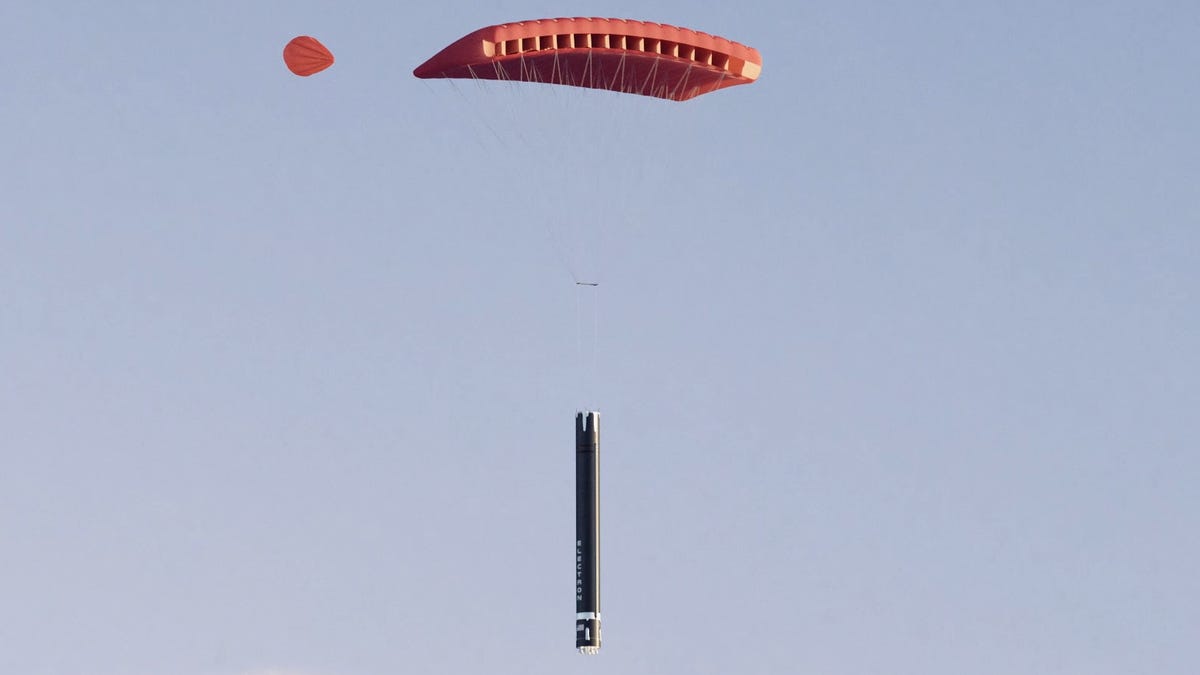SpaceX competitor Rocket Lab makes first Electron booster splashdown
The company aiming to be SpaceX for smaller satellites is working up to a historic helicopter recovery.

The booster will deploy a parachute on its return to Earth.
Rocket Lab is following in the footsteps of SpaceX by going to some pretty dramatic lengths to recycle its rockets. The startup with facilities in the US and New Zealand recovered the first-stage booster from one of its Electron rockets for the first time Thursday.
The rocket blasted off from New Zealand and boosted a number of small satellites -- including one particularly special garden gnome -- toward orbit for the mission, appropriately dubbed Return to Sender. The first stage then separated to make a controlled soft water landing in the Pacific Ocean using parachutes.
The live feed of the mission was lost when the rocket descended back toward Earth at high speed, but Rocket Lab confirmed via social media that the parachutes deployed successfully and that the rocket splashed down in the Pacific.
Founder Peter Beck later shared a photo of the Electron and one of its parachutes floating next to a recovery vessel.
Welcome back to Earth Electron! pic.twitter.com/lI39kLAS4Z
— Peter Beck (@Peter_J_Beck) November 20, 2020
Recovering a rocket using parachutes is hardly a new concept. It's something NASA has pursued in the not-too-distant past. And it's arguably not as dramatic as the propulsive landing system that SpaceX uses, but this is just a stepping stone to bigger plans that involve plucking a used Electron booster out of midair during its descent using a helicopter.
"What we're trying to achieve with Electron is an incredibly difficult and complex challenge, but one we're willing to pursue to further boost launch cadence and deliver even more frequent launch opportunities to small satellite operators," Beck said in a statement.
Rocket Lab demonstrated a midair capture of a mock rocket stage with a helicopter in April.
Snatching the booster out of the air prevents the possibility of damage from a water landing and floating around in salt water for a period.
"Bringing a whole first stage back intact is the ultimate goal, but success for this mission is really about gaining more data, particularly on the drogue and parachute deployment system," Beck explained. "Regardless of the condition the stage comes back in, we'll learn a great deal from this test and use it to iterate forward for the next attempt."
You can watch the full replay below -- and every unique view contributes to charity in the first 24 hours.



